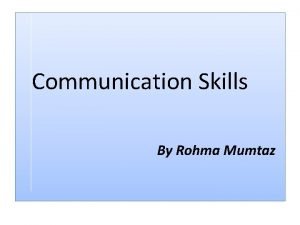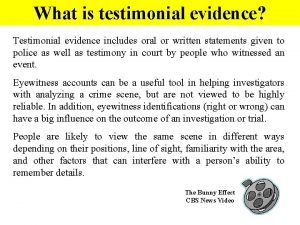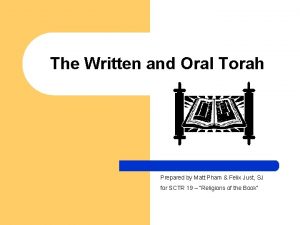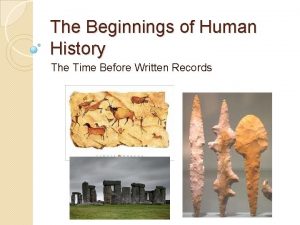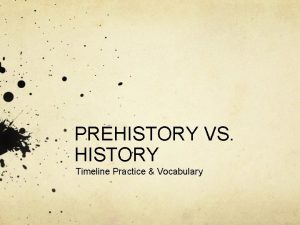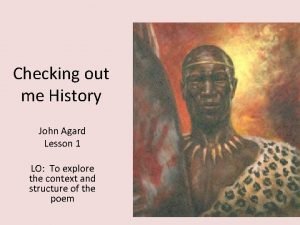TRADITIONAL HISTORY VS ORAL HISTORY Traditional Written History






- Slides: 6

TRADITIONAL HISTORY VS. ORAL HISTORY

Traditional Written History Traditionally, history has been viewed as the study of written human existence in the past. Facts were ascertained from documents, and documents were considered the most reliable source of information. Documents typically relied upon for the history of First Nations comes from Fur Trade Journals, Jesuit Journals, Government documents, etc. These documents are ethnocentric (biased) and often portrayed First Nations as “good Indians” or “bad Indians”

Written accounts of the history of First Nations people, was typically written by the Dominant Western Narrative. ex. Textbook Historians today rely on a wide variety of sources for their histories, including archeology, anthropology, ecology and meteorology, to mention a few (secondary sources) History, as we have come to know it, is a written record of the past. It is non-aboriginal history, largely grounded in documents reflecting past events from a non-aboriginal

Oral History An account passed down by word of mouth from one generation to the next. Commonly used from the aboriginal perspective to describe their point of view about human existence in the past, particularly the past prior to contact. may be constituted as direct accounts and oral traditions (recollections more than one generation old)- PRIMARY SOURCES. can relate to: creation stories, stories relating to genealogy, stories of past practices, events, customs or traditions. was the main tool for conveying a society’s history before written language came into practice.

The Supreme Court of Canada in Delgamuukw Vs the Queen (1997) confirmed that oral history evidence was admissible in aboriginal rights and title cases, and that it should be treated equally with other evidence and given due weight. This was the first court trial that changed the acceptance of oral history.

Who testifies to the oral history is important…. Whether the witness is a chief, an elder, or a special or spiritual person who is respected in the community, knowledgeable and educated about the oral traditions within the norms and customs of the nation, will be important considerations. The chiefs or elders are the experts on oral histories.

